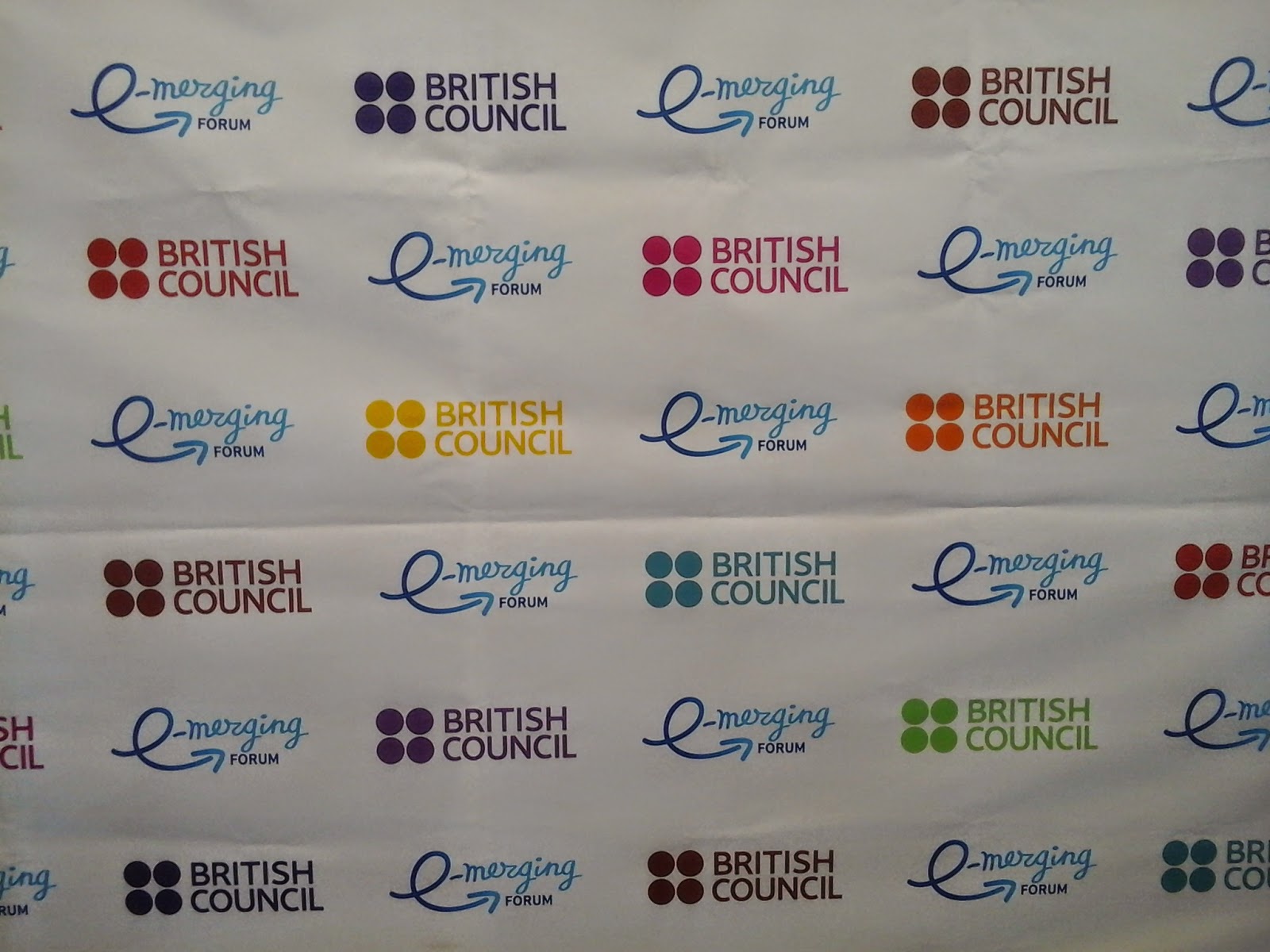I'm finally home and rested after E-merging Forum 5 in Moscow. A week after the end of the forum I sat down to think about it again. Being registered blogger definitely changed my experience of the conference and I'm not sure in which way. On the one hand I feel like I spent most of the forum head down in my tablet trying to type fast on the elusive keyboard. In some way I even feel that the conference kind of went past me :) Although it was tough the first day, I felt upbeat and even jotted down a post in the metro in the way to the conference building. I also have a very tangible proof of my presence there - 6 (!) posts, more than I write in a usual month.
I was trying to compare emf4 and emf5, but soon stopped trying. The first time is always super-exciting and new, I remember being really inspired by the ideas and people I saw a year ago. This time around I also left inspired not so much by the ideas (many didn't seem new), but by the people, teachers who continue to create, write, present, assess and improve.The final presentations left a big smile on my face and continued humming "If you are a stunning teacher.." (search for videos in instagram with #emf5) all the way to Saint-Petersburg. I wish I had had more time and courage to talk to my fellow teachers, but it is something I'll leave for next year...
I looked through my posts again and below you can find corrected versions with added links:
Herbert Puchta "Teaching Young Learners: What's hot and what not"
Catherine Walter "Learning grammar and pronunciation: what do we know and what can we do about it?"
Rimma Chaldymbaeva "10 reasons to use smartphones and tablets at efl classes"
Anna Loseva "Flashmob in elt"
Day 3 Plenary Talks
Day 3 Discussion Groups
Check out other registered bloggers' posts:
prolific Olya Sergeeva on ELT stories
Elena Matveeva on Language Flame blog
Natalia Almaeva on Natalia's blog
Mura Nava on EFL Notes
and an official blog + interviews with speakers on TeachingEnglish website
Thank you, British Council, for organising this wonderful event and all the teachers that made it worth visiting! Till next year!
I was trying to compare emf4 and emf5, but soon stopped trying. The first time is always super-exciting and new, I remember being really inspired by the ideas and people I saw a year ago. This time around I also left inspired not so much by the ideas (many didn't seem new), but by the people, teachers who continue to create, write, present, assess and improve.The final presentations left a big smile on my face and continued humming "If you are a stunning teacher.." (search for videos in instagram with #emf5) all the way to Saint-Petersburg. I wish I had had more time and courage to talk to my fellow teachers, but it is something I'll leave for next year...
I looked through my posts again and below you can find corrected versions with added links:
Herbert Puchta "Teaching Young Learners: What's hot and what not"
Catherine Walter "Learning grammar and pronunciation: what do we know and what can we do about it?"
Rimma Chaldymbaeva "10 reasons to use smartphones and tablets at efl classes"
Anna Loseva "Flashmob in elt"
Day 3 Plenary Talks
Day 3 Discussion Groups
Check out other registered bloggers' posts:
prolific Olya Sergeeva on ELT stories
Elena Matveeva on Language Flame blog
Natalia Almaeva on Natalia's blog
Mura Nava on EFL Notes
and an official blog + interviews with speakers on TeachingEnglish website
Thank you, British Council, for organising this wonderful event and all the teachers that made it worth visiting! Till next year!



